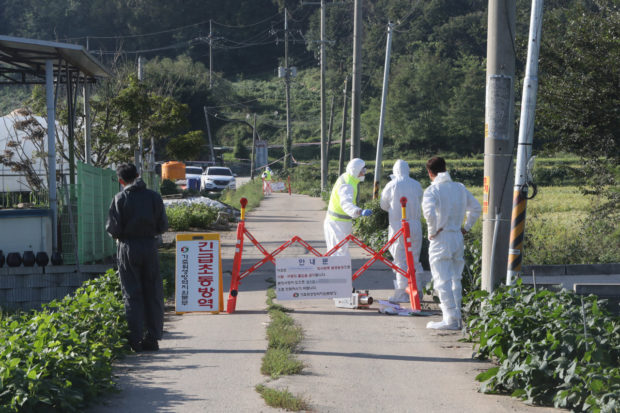Seoul lifts movement ban on pig farms, revs up quarantine to tackle swine fever
SEOUL — South Korea’s agriculture ministry said Thursday it has lifted the 48-hour movement ban on local pig farms as the country accelerates efforts to prevent the spread of African swine fever here.
The Ministry of Agriculture, Food and Rural Affairs imposed a nationwide standstill on all pig farms, slaughterhouses and feed factories across the country on Tuesday morning after the country confirmed the first case of ASF in Paju near the heavily fortified border with North Korea.
A new ASF case was reported in neighboring Yeoncheon the following day, raising concerns over the spread of the highly contagious animal disease.
The ministry said it has completed the disinfection of around 6,300 pig farms across the country and checked the condition of pigs there.
As part of quarantine efforts, the ministry designated the six counties of Gyeonggi Province, including Paju and Yeoncheon, as tightly controlled zones.
Article continues after this advertisementMore than 400 farms are estimated to be raising around 700,000 pigs in the affected areas.
Article continues after this advertisementThe pig farms of Gyeonggi Province and Incheon, west of Seoul, will be banned from transporting pigs to other regions for three weeks — longer than one-week restrictions imposed on farms in other regions.
The African swine fever cases came roughly four months after North Korea reported its first confirmed case of the disease at a farm near its border with China to the World Organization for Animal Health.
Although ASF is not harmful to people, it is fatal and highly infectious for pigs, with no cure currently available.
The disease is mainly spread by contaminated feed or by direct contact with people and wild animals with the virus.
Following the lifting of the nationwide standstill, the supply of pork to the market will be normalized, the ministry said. Yonhap
